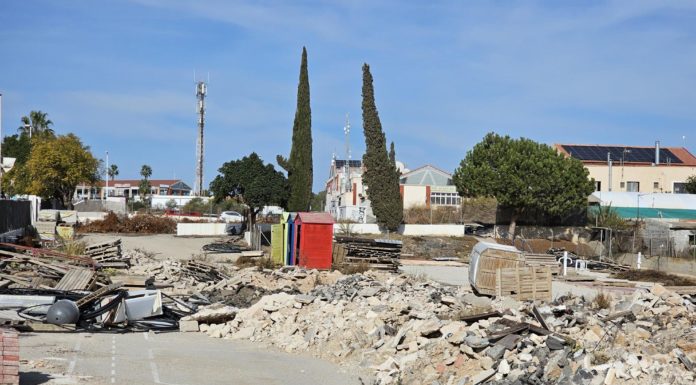April 12
Email
Contributor Robert Smith generously replied to my letter of a couple of weeks ago in which I criticised the current British Labour Party, the European Union political project, and the liberal left… the main thrust of his reply being that criticism of those organisations somehow implied a ‘hatchet job’ or ‘hate’ of those organisations. When a broad subject is condensed into a short letter, it’s inevitable that sometimes the point being made is unclear or is misunderstood, so here’s why criticism of those three organisations does not imply a hatchet job nor hate of those organisations.
Firstly, the Labour Party. The British Labour Party can be rightly proud of improving the lives of working people and the less well off from the time of its origin in the 1920s up until the late 1990s. Indeed, I voted for them a few times. However, during the Blair years in government from 1997 and up until the present day, the Labour Party has gradually become a fundamentally different party which is now very London oriented, very liberal left in outlook and concerned more with courting Big Business and champagne socialist ideas than with bettering the lives of ordinary working people and the less well off. In short, it has lost sight of its reason for existence, lost the confidence of many of its traditional voters and for the moment is unelectable. The current leader, Keir Starmer, seems to be little more than a less charismatic version of Tony Blair. It’s difficult to detect any appetite in the UK for a return to the Blair years, Blair’s ‘New Labour’ project is now firmly filed away at Labour headquarters in a dusty cabinet marked ‘Embarrassments never to be mentioned again’. The Labour Party has a great history but can be justifiably criticised now for temporarily losing its way and forgetting its core raison d’etre. That in no way implies a hatchet job or hatred of the Labour Party.
Next, the European Union. The European Union was originally set up in 1957 as a free trade, low or nil tariff organisation. It was an inspiring and admirable organisation coming so soon after the divisions of the Second World War, and for many years it facilitated the economic development and success of its participating countries and demonstrably improved the lives of its citizens. Certainly when the UK had the opportunity to join in 1973, I enthusiastically voted to join.
However, via the Maastricht Treaty of 1992 and the Lisbon Treaty of 2007 that generally admirable and successful free trade zone was transformed. The liberal left idea of creating one grand Pan-European country, run from one central government and absorbing the sovereignty of its constituent nations was now to be a major objective. This was the modern Liberal Left’s interpretation of a few words about increasing union in Europe mentioned in the original Rome Treaty which set up the then European Economic Community in 1957. But that plan to gradually the absorb the sovereignty of individual European nations has led to the current situation of an out of touch, overbearing, unelected and centralised European Commission trying to run the whole of Europe from a town in Belgium. That unelected European Commission is increasingly coming into conflict with individual member states, and is increasingly trying to impose its will by the mechanisms of ostracising individual nations, imposing fines, and withholding funds. The following words of Mikhail Gorbachev the former Communist Party President of the Soviet Union (you can’t get much further to the left than that) most succinctly sum up the problem…’The most puzzling development in modern politics is the apparent determination of Western European leaders to recreate the Soviet Union in Western Europe’.
It is perfectly possible to be an enthusiastic supporter of the successful European economic project of free trade, while at the same time believing that the liberal left driven political project to create a grand European state is an historic mistake, which will eventually lead to the EU’s demise. Criticising that latter aspect of the current European Union in no way implies a hatchet job or hatred of the European Union as a whole.
Finally, the liberal left outlook and its current predominance in European affairs. Some aspects of liberal left thinking are admirable… I still subscribe to some liberal left ideas myself.
However, in two important respects the influence of liberal left thinking is currently a negative not a positive force, or in the jargon of the liberal left, retrogressive not progressive. As mentioned above, the predominance of modern liberal left thinking in the British Labour Party has temporarily made Labour unelectable. Likewise, the predominance of liberal left thinking in Europe and its relentless drive to straitjacket the diverse nations of Europe into one grand conglomerate nation is ruining the European Union. If the liberal left continue to dogmatically pursue that European political project, it will eventually lead to the breakup and demise of the European Union. To criticise one aspect of the liberal left groupthink on Europe in no way implies a hatchet job or hatred of liberal left ideas in general.
Many on the liberal left these days identify themselves as Marxists so they will be very familiar with Marx and his sidekick Engels’ underlying philosophical stance of dialectical materialism i.e. the idea that when something consists of two irreconcilable forces the tension between those two forces will inevitably lead to its demise. In Marx’s theory, capitalism consisted of the irreconcilable interests of the factory owners and wealthy against the force of the workers, and his conclusion was that capitalism would inevitably fall and be consigned to history. Within the European Union, the two irreconcilable forces are the sovereignty of the member nations as opposed to the liberal left political project to swallow up the individual and diverse nations of Europe into one big Pan-European country that, they believe, will be on a par with the United States, China, and Russia. That political project is neither progressive nor is it a force for good. It’s a flawed historic mistake. It’s very telling that none of the other free trade organisations in the world such as those in Asia and South/Central America have chosen to emulate the European political project of gobbling up the sovereignty of its participating member states.
In conclusion, therefore, I suggest that criticising aspects of a political project or organisation in no way implicitly means doing a hatchet job or hatred of that project or organisation.
All the best. Regards.
Brian, Valencia

































